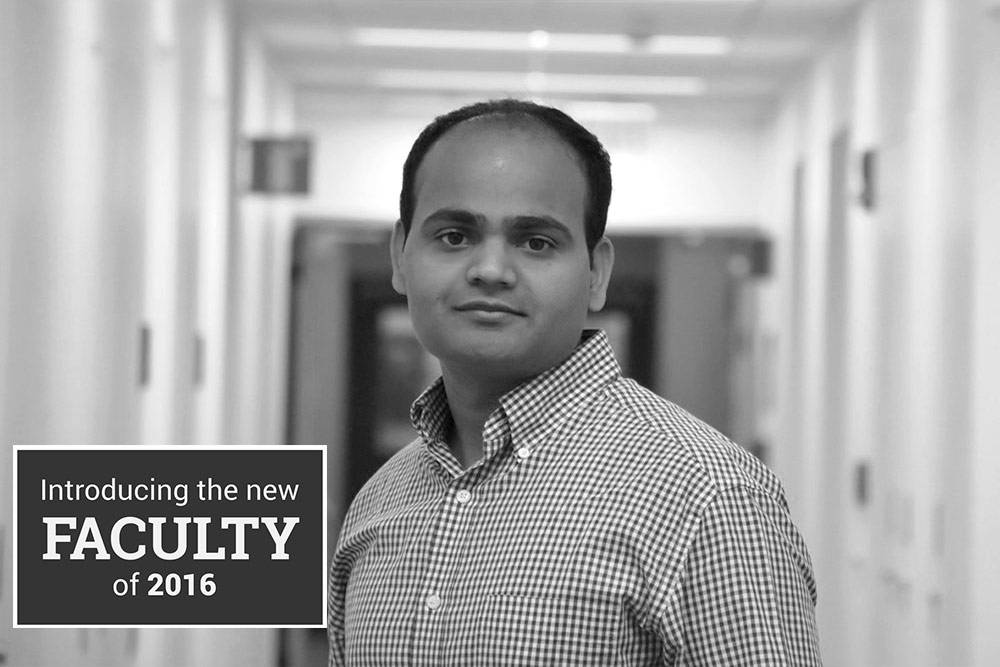Purushothama Tata: So Many Ideas, So Little Time
New regenerative medicine specialist is a font of creative research

Purushothama Rao Tata is a longer name than most folks can handle. So the newly-arrived Duke assistant professor of cell biology lets everyone call him Tata for short.
The 34-year-old’s research ideas can also be more than most folks can handle.
“The way I take it is that we have hundreds of questions, but there is only one question that I can pick for now as the most important and most relevant.” And that question is? Well, it’s a pretty long answer.
Tata’s time and his new lab at Duke will be split initially between two areas: the cell-to-cell communication that might lead to humans being able to regenerate lost tissues the way a salamander re-grows its tail, and a question about how squamous cell lung cancers come to be so different from the normal cells that begat them.
The two areas are more similar than you’d think, and both focus on the lung, where Tata uses tools and findings pioneered by Brigid Hogan, the chair of cell biology in the Medical School. His primary appointment will be there, but he’ll also have intellectual homes within the new Regeneration Next research initiative and the department of pharmacology and cancer biology.
“Tata is a regeneration biologist who discovered novel mechanisms for how the epithelial lining of lungs renews itself after injury,” said cell biologist Ken Poss, who directs Regeneration Next. “His work has been redefining how we think about stem cells and about the process of 'dedifferentiation,' or the reversal of fully developed cells to have more stem cell-like features.”
“What impresses me most about Tata is the breadth of his knowledge of technology and biology, and of the cross-cutting program he intends to establish here,” Poss said. “His grasp of both big picture and granular details is remarkable, and I think it will be a blast to interact with him and his lab.”
One of his collaborators early on will be with biomedical engineering assistant professor Brent Hoffman, whose work focuses on ‘mechanobiology,’ the ability of cells and tissues to sense physical forces in their environment. “I’m having a little trouble remembering the details of any one the approximately 4,000 potential projects we discussed!” Hoffman concedes. Tata said he wants to work with Hoffman on whether pressure within the chest cavity affects the size of lungs.
“Tata's arrival on campus will open a variety of new studies for my lab, as well as many others,” Hoffman said. “He can provide a great bridge between the cell biology, regenerative medicine, and engineering communities.”
In his native India, Tata earned a bachelor’s degree in biotechnology from Kakativa University and a master of science in animal biotechnology at the University of Hyderabad. His doctorate is from the University of Ulm in Germany, where he studied developmental biology. He then completed his postdoctoral training at Massachusetts General Hospital in the lab of Jayaraj Rajagopal, MD, a pulmonologist who studies regenerative medicine.
The promise of regenerative medicine is to understand the signals that allow some vertebrates to grow replacement parts, an ability humans may have had at some point, but lost along the way. Tata says he’s confident we’re on the right path to figuring it out, though it’ll be a long journey.
“We are looking at those salamanders and all the amazing things that are happening there, and we are surprised to see how many different regenerative things are occurring in our own tissues that we didn’t know about.”
Tata and his wife live in Chapel Hill with their toddler and infant. He started at Duke Aug. 15.